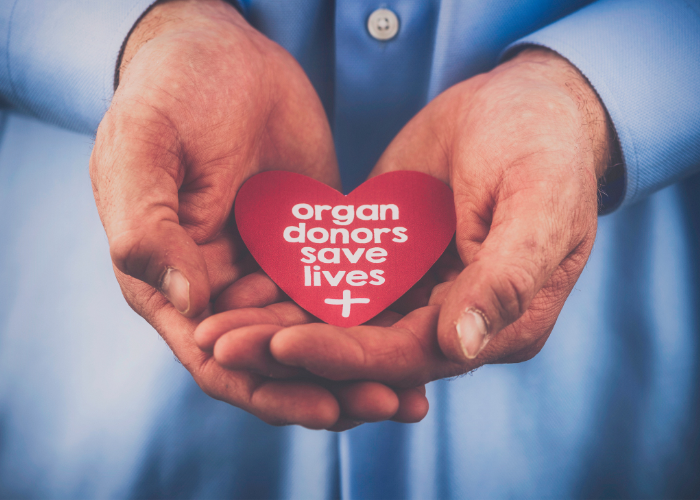
Tees Mutual Backs Organ Donation Awareness Campaign
Most people know that organ donation is a way to give someone else the opportunity to live a fuller life after you die.
But were you aware of a major change to the law that came into force last year, when the news headlines were dominated by the coronavirus pandemic?
Since May 2020, it has been assumed that anyone who dies in England gives permission for their organs to be used for transplant purposes unless they have opted out by registering their wish not to donate.
This follows a successful change to the law in Wales five years earlier that led to a rise in the consent rate from 58% to 75%.
Tees Mutual agents have been helping raise awareness of the new system by handing out information leaflets out to our members while collecting their weekly payments for our Funeral Savings and Savings plans.
However, a national campaign to ensure as many people as possible know about the change was halted to ensure vital Covid-19 messages such as the importance of social distancing were heard.
It’s also likely that the law will not be fully enforced until the pandemic is over.
The new system is being called Max and Keira’s Law, after a boy who was given a heart after a nine-year-old girl was tragically killed in a road accident.
It’s now more important than ever to talk to your family and let them know your choice, which could spare them from additional anguish in the event of your death when they are already grieving.

You can still choose to donate only certain organs by making your preference known on the register.
Tees Mutual chief executive Phil Carey said: "In some ways it's surprising that this hasn't happened before now. Presumed consent will save lives and has to be a good thing, as long as there is always provision for those who for whatever reason don't want to take part to opt out."
Certain groups are excluded from presumed consent, including children and those who don’t have the mental capacity to decide for themselves.
NHS Blood and Transplant says only about one in 100 people die in circumstances that enable their organs to be donated.
However, those who can dramatically transform the lives of patients who may have waited many years for a suitable transplant.
“Where donation is a possibility, our specialist nurses continue to sensitively approach families and to answer any questions the family may have – for example, around how beliefs or culture would be respected if the family supports organ donation going ahead,” says medical director, organ and tissue donation and transplantation, Professor John Forsythe.
“People always have a choice about whether or not to donate and can record their decision at any time – before or after the opt-out system comes into effect,” adds national clinical lead for organ donation, Dr Dale Gardiner.
“Families are always consulted to ensure we know what the person who has died wanted to happen and people’s faith, beliefs and culture will continue to be respected.”
The pandemic has caused further shortages in that nobody suspected of having the virus is eligible to donate.
But NHS Blood and Transplant says its specialist nurses will always speak sensitively and respectfully to bereaved families to ensure people’s decisions are abided by.
You can register your decision to donate some or all of your organs – or record your decision not to donate – here.
You can also download this factsheet giving more information about the new system – or ask your Tees Mutual agent for a leaflet.





